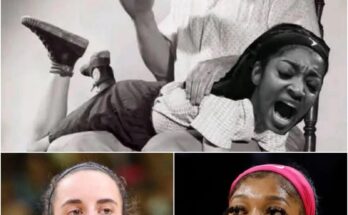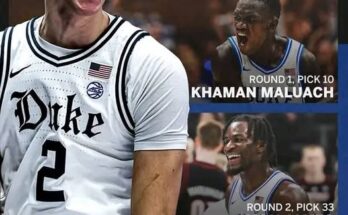Trey Smith opens up about Joe Thuney’s departure: “It’s heartbreaking, man… He’s one of the best teammates I’ve ever had. Just a real leader, someone you could count on every snap, every moment. Seeing him go—it hits hard. It’s not just losing a player; it’s losing a brother in that locker room.”
Trey Smith didn’t hold back when asked about the departure of veteran offensive lineman Joe Thuney, a pillar of consistency and leadership on the Kansas City Chiefs’ offensive front. His reaction wasn’t rehearsed or polished—it came straight from the heart, as raw and real as the trenches they fought in together. “Heartbreaking, bro,” Smith said, shaking his head with a heavy sigh. “He’s one of those guys you just don’t replace. You don’t find another Joe Thuney. What he brought to the team, the locker room, and to me personally—it’s hard to put into words.”
Smith, known for his powerful presence on the field and humble demeanor off of it, often credits his growth in the NFL to the mentorship and quiet leadership of Thuney. For him, this was more than losing a teammate. It was losing a daily influence, a standard of excellence, and someone who set the tone from the moment he stepped in the building. “Joe was that guy who led by example. Never needed to raise his voice, never tried to be flashy. But you’d see him every day doing things the right way. Always early, always prepared. And you’d just want to be better because he made it the norm.”
That kind of impact isn’t just felt in meetings or during practice reps. It seeps into every part of a team’s culture. For the Chiefs, a franchise that’s become synonymous with excellence in recent years, losing Thuney is like losing a cornerstone in the foundation of what they’ve built. “People talk about Patrick, Travis, and Coach Reid—and yeah, those guys are everything to this team—but in the trenches, Joe was our quiet anchor,” Smith explained. “He brought so much stability. So much calm. When things got chaotic on the field, I’d look over and see Joe, and I knew everything would be fine.”
When Smith first entered the NFL, he was a promising but unpolished talent out of Tennessee. He had all the physical tools but needed the right environment to flourish. That environment included Joe Thuney, who took it upon himself to show the young lineman what being a professional truly meant. “From day one, Joe welcomed me. He didn’t have to do that. He could’ve focused on his own game, but he went out of his way to teach me, guide me. It wasn’t just technique or playbook stuff—it was how to carry yourself, how to prepare, how to think like a champion.”
That mentorship left an imprint on Smith, who quickly rose through the ranks to become one of the most dependable players on the Chiefs’ offensive line. In interviews and in team meetings, Smith often pointed to Thuney as a role model, someone who showed the way without needing to say much. “That’s the thing about Joe,” Smith said. “He didn’t need to talk a lot. You just watched him, and you knew what greatness looked like. You wanted to match his effort, his focus. If he was putting in extra film time, you’d feel guilty not doing the same.”
As for the emotional toll of Thuney’s departure, Smith admits it’s something he’s still processing. “We’ve been through a lot together. Games, injuries, wins, losses. Joe was always steady. Always the same dude. You never had to worry about his effort or commitment. To not see him in that locker room anymore—it leaves a hole, man. A big one.”
He paused, then added, “You build bonds with guys that go beyond the game. This isn’t just about football for me. This is about losing someone who helped shape who I am as a pro.”
Smith also acknowledged what Thuney meant to the entire offensive unit. “The chemistry we had up front, that doesn’t just happen. It takes time, trust, and reps. Joe was the glue. He brought us together. When the pocket held up for Pat, or when we broke a big run, a lot of that was Joe doing his job so perfectly that nobody noticed. But we noticed. Every single one of us.”
The younger players, especially those who came in over the last couple of seasons, often found themselves naturally gravitating toward Thuney. It wasn’t because he tried to be the leader—it was because he simply embodied it. “I think of all the rookies who came in and immediately looked up to Joe,” Smith recalled. “He wasn’t loud, wasn’t trying to be the star. But they watched him. We all did. And he never let us down.”
When asked if he had a favorite memory with Thuney, Smith smiled. “There’s a bunch, but honestly? It’s the little things. It’s the quiet moments in the film room where he’d catch something nobody else saw. Or how after a tough game, he’d come up to me, pat me on the back, and say, ‘We’ll fix it.’ Never panicked. Always calm. Those are the moments I’ll miss the most.”
Smith acknowledged that football, at its core, is a business. Players come and go, rosters change, and moves get made for a million different reasons. But that doesn’t make the emotional part any easier. “Yeah, it’s business. I get that. I really do. But when it’s someone like Joe, it cuts deeper. He’s not just a name on a roster. He’s family. He’s someone who helped build this thing.”
He also emphasized that the standard Thuney set won’t just disappear. In many ways, Smith feels responsible for carrying that torch forward. “Joe’s not here, but his legacy is. Everything he taught us, everything he stood for—it’s still in that locker room. And I’ll do everything I can to keep it alive. That’s what he would want. He wouldn’t want us moping around. He’d want us grinding. Getting better. Staying locked in.”
Still, the loss is fresh, and Smith didn’t shy away from admitting that it’ll take time to adjust. “The first practice without him? It felt weird. Like something was missing. Because something was. Joe was the heartbeat of our line. And now, we’ve got to find a way to move forward without that heartbeat.”
There’s a new chapter beginning for both Thuney and the Chiefs. As Smith prepares to step into a bigger leadership role, he does so with the memory and influence of Thuney etched into his mindset. “I owe a lot to Joe. More than I can say. He showed me how to lead, how to stay humble, how to keep showing up no matter what. I’m grateful for every snap, every conversation, every moment.”
As Smith spoke, it became clear that Thuney’s departure wasn’t just a roster move. It was a reminder of the human side of the sport—the relationships, the mentorship, the bonds that last long after the final whistle. “People see the game, the wins, the trophies. But behind all that are guys like Joe, grinding every day, holding the team together. I’ll never forget what he meant to us.”
For the Chiefs’ offensive line, the work goes on. New leaders will emerge, and new chemistry will form. But for Trey Smith, there will always be a part of him shaped by the quiet strength and unwavering presence of Joe Thuney. And in the trenches, where the true fabric of a team is tested, that legacy will live on in every block, every rep, and every moment of trust shared among the men who protect the quarterback and carry the weight of the game on their shoulders.

